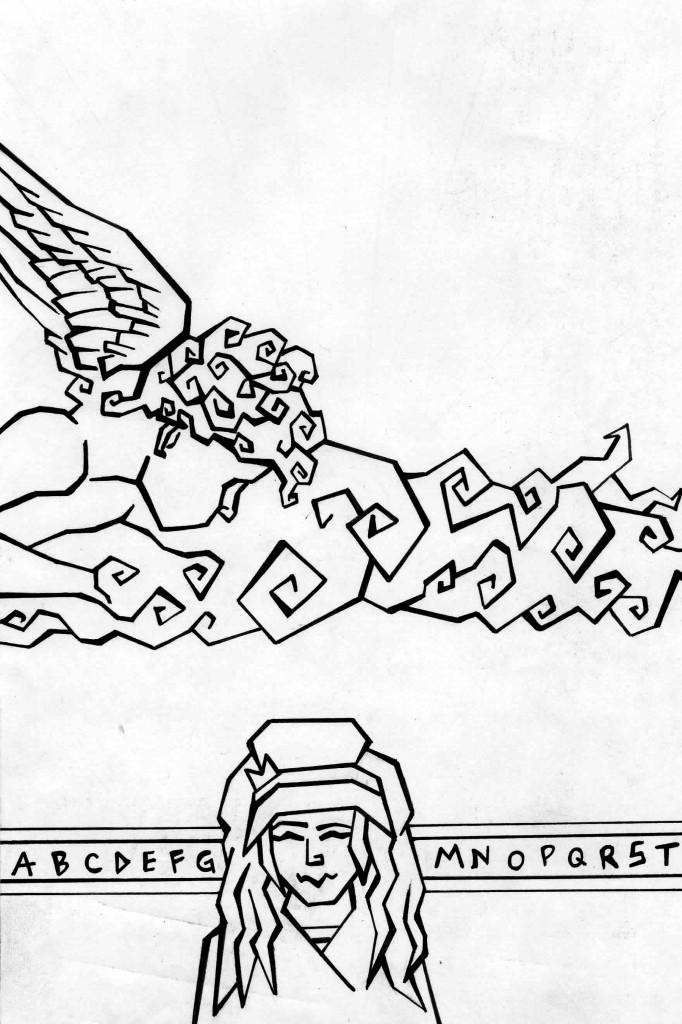Benedictions
I went and walked around campus one last time. There was a loud spectacle going on in the quad that I heard before I saw, so I wandered around the hallways and concourse for a little while before going to Where the Benches Were. I don’t know how to not miss so much. All of these places and people will become ghosts in my memory, unaging and transparent against my will and against my aching fingers trying to hang on to what they meant. As if by reading some profound meaning into their appearance in my life, I could preserve them. I could not lose them. What I don’t realize is that doing so is exactly what I should avoid if I want to refrain from creating ghosts. I am bad at losing. Elizabeth Bishop can say what she wants; it is demanding. It requires slavish discipline in order to lose.
Where the Benches Were is framed by the trees and you can see the depth of the looming arts buildings past the rows of lanterns and the library off in the distance. It’s the place where I sat late into the night with my friend while she smoked and we talked about all things. Where I sat during the summer rainstorm reading creaky books and watching the sky be a god. Where I hung out after another class because I wanted to postpone going home, much like I did that last night. Where I perched on the top step on the chilly morning in February when I smoked and read Hardboiled Wonderland and the End of the World, and was too shy to speak to one of my profs who was smoking a few feet away before we had class together. What you have to say still burns from your throat, wraps itself around your neck and drags you unwillingly forward. I spent four years studying language but I am still learning how to speak these things. This one place summarizes everything that has made me.
You won’t find an endgame. What you want, what you’ve always wanted, is someone to speak for you. To have what you need to say said without it being you who has to say it. You’ve lived in perpetual denial of your own tongue; you learn the tenets of how to analyse unreal figures with clinical precision and then adamantly, obstinately refuse to apply them to your own life. There is a very real danger that you won’t like what you come across. Let your skeleton stay buried in your body. This would be both simpler and cleaner if the irony evaded you completely, but it never has. You have the pinprick sense that you are being unfair, that you are aligning yourself on an impossible axis. What you can’t figure out is if this is truly unfair, or if it’s something to expect, an ego, a human. Not that it would absolve you of your hypocrisy, but it would lessen the blow.
The night before I leave, I dream one last time that we are there; a distorted, enormous variation of our university with much higher ceilings and halls, and more numerous and intricate stairwells. It’s late evening and the inside is all fluorescence. Hallways are glass and misdirection. We hold different visions of one another as we dream in unison: phantasms only catching distorted half-glimpses of the other as we try to work our way through the maze of halls in order to make our paths intersect. I look above my shoulder and see you through a glass wall disappearing out of sight as you walk up stairs, only a flash of your satchel hinting at your escaping presence. I want to shout, wait. Wait for me. I would feel safer being in your presence in this place of edges and multiplicity. I feel that if I could only reach you, could only walk with you, I would be locatable. I would be safe. I would know. We could go out and sit at the one place on campus that I remember. And so I frantically try to weave through the grand, tricky space of this university in pursuit. The semblance of any self-assuredness is what I want to be able to offer up as a sacrifice in order to learn humanity, but I can’t quite do it, not yet. Not even after four years. Maybe I’m flying far away to catch up.
